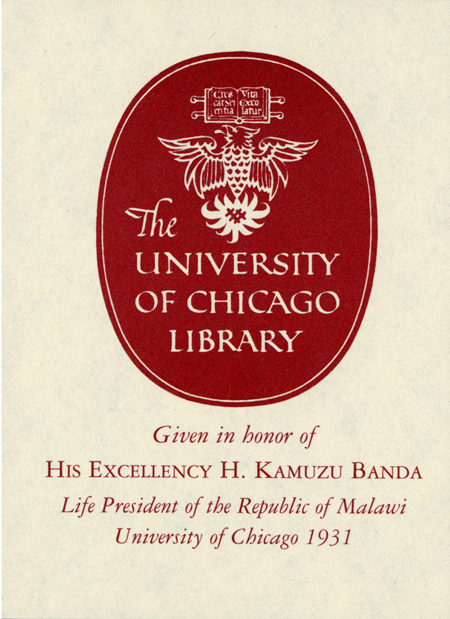Review by New York Times Review
CHOKEHOLD: Policing Black Men, by Paul Butler. (New Press, $26.95.) A law professor and former federal prosecutor argues in this readable and provocative book that releasing prisoners who are not dangerous would free up resources to combat the segregated poverty that underlies our criminal justice system. LESS, by Andrew Sean Greer. (Lee Boudreaux/Little, Brown, $26.) On the eve of his 50 th birthday and a former lover's wedding, a mediocre novelist takes refuge in literary invitations that enable him to travel around the world. The novel is smart, humane and laugh-out-loud funny. THE RETREAT OF WESTERN LIBERALISM, by Edward Luce. (Atlantic Monthly, $24.) Luce, a columnist for The Financial Times, employs fluid prose and telling statistics to argue that the tradition of liberty and democracy, and by extension the open international and economic system that has characterized the Western world since 1945, is under mortal threat. THE ANSWERS, by Catherine Lacey. (Farrar, Straus & Giroux, $26.) Funny, eerie and idea-dense, Lacey's novel features a woman hired by a team of researchers to perform the transactions that make up a romantic relationship for a famous actor. She is "Emotional Girlfriend," bound to affirm his opinions and text him often. WHO IS RICH?, by Matthew Klam. Illustrated by John Cuneo. (Random House, $27.) The protagonist of this challenging novel, a middle-aged illustrator, is a conflicted adulterer. Klam agilely balances an existentially tragic story line with morbid humor and self-assured prose. LIGHTS ON, RATS OUT: A Memoir, by Cree LeFavour. (Grove, $25.) This gritty account of a woman's struggle with self-abuse describes nearly gothic suffering. It is also a love story about a dedicated and gifted analyst and his difficult but equally gifted patient. Courageous and unsettling, LeFavour's memoir is infused with humor and wry insight as well as pain. THE LAST LAUGH, by Lynn Freed. (Sarah Crichton/Farrar, Straus & Giroux, $25.) Three friends, nearing 70, decide to spend a year in Greece in this darkly, mordantly funny novel. There they encounter sexy locals and their angry wives, while people from their pasts keep turning up. HOUSMAN COUNTRY: Into the Heart of England, by Peter Parker. (Farrar, Straus & Giroux, $30.) This critical biography attributes Housman's contemporary popularity to his ability to evoke a timeless countryside while England was becoming increasingly urban. THE CRIME WRITER, by Jill Dawson. (Harper Perennial, paper, $15.99.) Dawson's novel uses the life of Patricia Highsmith to probe the territory between reality and fantasy that so fascinated her. Told in both the first- and the third-person, it is full of pomo fun. The full reviews of these and other recent books are on the web: nytimes.com/books
Copyright (c) The New York Times Company [August 27, 2017]
Review by Publisher's Weekly Review
Three "mad old bags," all pushing 70, pool their resources to rent a house on a Greek island for a year in the drily whimsical latest by Freed (The Servants' Quarters). Narrator Ruth, a South African transplanted to the United States, has just given up writing a series of detective novels, and pens a magazine column about their Greek adventures called "Granny Au Go Go." Her half-sister, Bess, devotes herself to shopping and a fling with a local taxi driver, and Israeli Dania, a psychotherapist with a flair for misusing the English language (e.g., "Scrap the bottom of the barrel"), fends off a former patient with blackmail on her mind. Freed juggles a cast of interrelated characters that runs into the dozens, the most notable of whom is Gladness, Bess's Zulu best friend and the former nanny to her children, and which also includes several former still-hunky lovers. If the various children and grandchildren who pop in and out, testing their elders' patience, sometimes blur together, the core relationships stay strong, making for a pleasant and diverting read. Ruth's columns, which occasionally reveal more than she intends about her housemates, add humor. (July) © Copyright PWxyz, LLC. All rights reserved.
(c) Copyright PWxyz, LLC. All rights reserved
Review by Kirkus Book Review
Greece is the word for a trio of almost-septuagenarian women determined to enjoy an idyll free of family and romantic entanglementsor is it?Ruth, Dania, and Bess, the triad at the center of Freed's (The Servants' Quarters, 2009, etc.) slyly delivered version of a novel of women's self-actualization, retreat to a Greek isle for a yearlong experiment in communal living undisturbed by children, grandchildren, lovers, or others. Ruth, a South African expatriate and mystery novelist, narrates the trio's saga, directly and via journal excerpts and magazine columns chronicling the sojourn. The column, optimistically entitled "Granny Au Go Go," provides Ruth and her half sisterthe indolent Besswith an opportunity to "tell it like it is" for women of a certain age as well as a way to illuminate the differences between the truisms of later life and the stereotypes of grannyhood. Dania, a kibbutz psychologist given to malapropisms, balances out the threesome with an apparent self-absorption that masks a troubling reality. When snakesin the form of family, friends, and loversinvade the proverbial Eden created by the three, the carefully crafted equilibrium among the group is balanced and rebalanced and balanced again. Comic relief is provided by the (often painfully earnest) politically correct edits a faceless editor provides for Ruth's columns, but macabre and antic episodes may distract the reader's attention from Freed's observations about women's lives and second-wave feminism woven throughout the tale. Fraught relationships between mothers and daughters, grandmothers and grandchildren, and men and women are explored and detailed against the backdrop of usually perfect scenery, but it is the sometimes-madcap behavior of Freed's characters that may be the takeaway for many readers. Replete with references to Greek mythology, Freed's modern retelling of a timeless tale of self-fulfillment wanders into surprising territory along the way. Copyright Kirkus Reviews, used with permission.
Copyright (c) Kirkus Reviews, used with permission.
Review by New York Times Review
Review by Publisher's Weekly Review
Review by Kirkus Book Review

